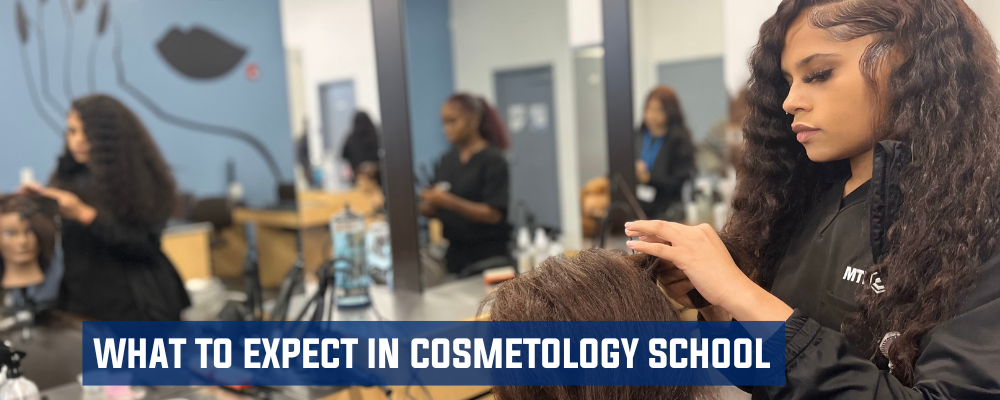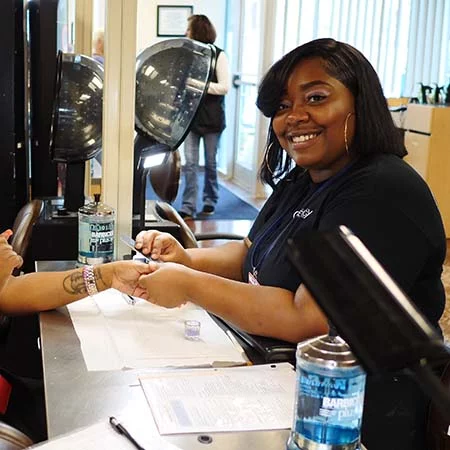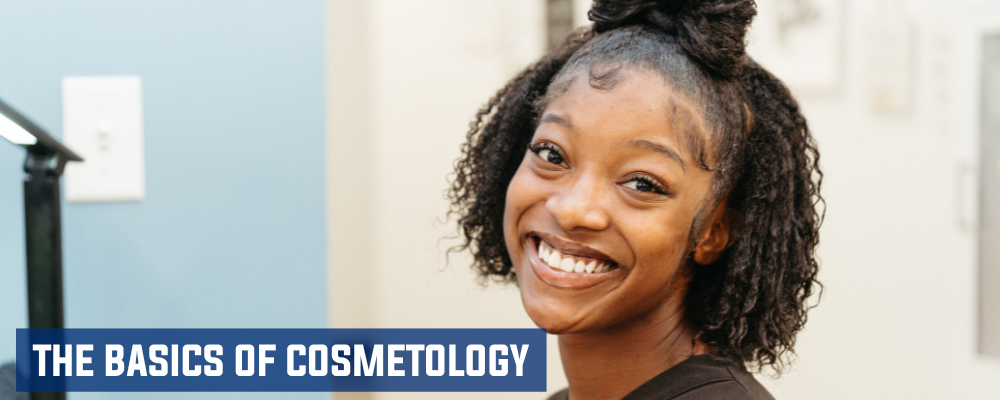If you are considering a career as a cosmetologist, makeup artist, manicurist, skin care specialist, or one of many other exciting jobs in the beauty industry, cosmetology school may be for you.
Many find the classroom training and hands-on experience of cosmetology school to be very rewarding. After successfully completing your beauty school education, you will be prepared with the entry-level skills and knowledge you need to work in a salon. You will also be ready to complete the state exams required for your cosmetology license.
What should you expect in a cosmetology school? This guide explores the answers to common questions beauty school applicants have.
What will I learn in cosmetology school?
You will have the opportunity in cosmetology school to learn many new beauty skills, including the following:
- Basics: anatomy of hair, skin, and nails; the ingredients and chemicals of beauty products.
- Hair: common salon services including cutting, coloring, and styling hair; finished hairstyles, including highlights and lowlights, blowouts, and updos; popular men’s and women’s cuts and styles.
- Skin: basics of skin care including how to perform facials and apply makeup looks, such as highlighting and contouring; skincare treatments to the face and body; treating various skin conditions.
- Nails: manicures and pedicures; cutting, shaping, and polishing fingernails and toenails.
- Business Training: essential business skills, including scheduling appointments, building a client base, and other management functions like managing a budget, payroll, and employee schedules.
How will my school teach cosmetology?
Most cosmetology schools structure their training in two main phases:
- Classroom learning, where you will learn theory from instructors and practice new techniques and methods on mannequins.
- Hands-on salon experience, where you get the opportunity to work with real clients. Beauty school salons often offer services to the general public at a discounted rate, so students can gain practical experience in hair, skin, and nails.
Both of these phases will help you master the theory and skills of the cosmetology profession and also apply what you learn in a real-world environment.
Interested in Learning More About Cosmetology?
Fill out the form below to receive info about our career training programs.
How much does cosmetology school cost?
The cost of attending cosmetology school varies. Before you apply, do your research. Ask the school for its tuition rates and fees as well as estimated costs for books and supplies. Also, consider other potential costs, such as housing. Federal financial aid is available to those who qualify. Contact our Admissions Team for more information.
What beauty supplies will I need?
At Delta Tech, your supply kit will include a mannequin head, stylist apron or smock, shampoo cape, spray bottle, cutting shears, styling brushes, combs, picks, and other needed beauty supplies. At Delta Tech, these supplies are included in your tuition and fees and provided to you during the course of the program.
How long will cosmetology school take?
The length of a cosmetology training program is determined by the number of training hours required by the state to get your cosmetology license at the end of the program. State licensing boards in Mississippi, for example, require a minimum of 1,500 clock hours in cosmetology training (300 hours theory and 1,200 hours practical). Delta Tech’s Cosmetology Program offers a 13 month and a 17 month option. Daytime and evening classes are available.
To learn more about The School of Cosmetology at DTC, request more information.
SOURCES
https://www.deltatechnicalcollege.com/documents/GE/HLMS-Cosmo-16.html
http://www.msbc.ms.gov/Documents/Rules%20and%20Regulations%20121717.pdf
https://www.bls.gov/ooh/personal-care-and-service/barbers-hairstylists-and-cosmetologists.htm#tab-4



